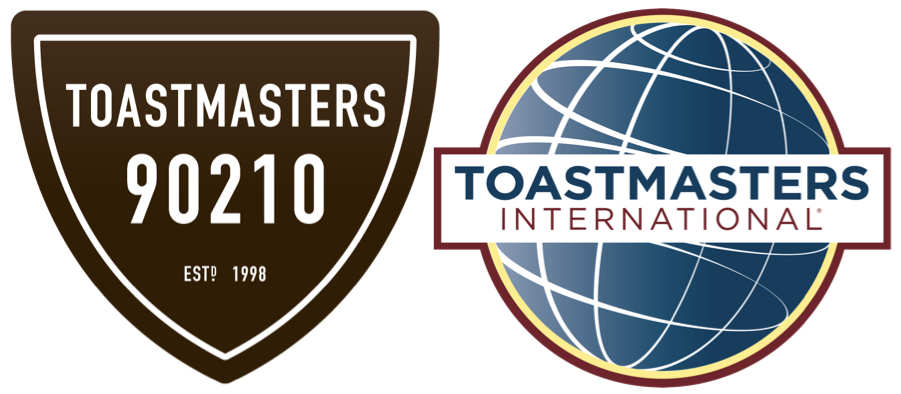Things We Said Today
There are more than 273,000 words in the English language. That's a lot of words! With that kind of variety, how could two conversations ever sound alike?! And yet… our daily conversations are often riddled with meaningless cliches and overused words.
Let’s get to a “nice” example.
Toastmasters in our club are infatuated with the word “thing”. In one recent meeting alone, I counted 48 uses of the word “thing”.
But here’s the thing:
“Thing” is a word that is so vague that, when you use it, we have no idea what you are talking about! When you really get present to this situation, it becomes infuriating.
I have a revelation: I am addicted to the word “thing”.
When evaluating a very advanced speaker a few months ago, I proclaimed that I was going to talk about three “things” that I liked about his speech, and three “things” that could be improved. And then I had one more thing to add: He could have done less of that thing he did with his hands.
I am not sure how well my evaluation recommendations were received…because they were so vague.
My evaluation and elocution could have benefited from some wordsmithing…or a thesaurus.
Creatively, though, I am in good company.
There are numerous films, songs and characters named “Thing”. That’s nice…but there has to be a more descriptive word!
Popular Culture, Like Our Speech, Is Littered With “Things”
Here are some classic examples from popular culture:
"That Thing You Do”
“Things We Said Today”
“The Thing”
“Thingumybob”
"A Funny Thing Happened on the Way to the Forum”
“Do the Right Thing”
“Crazy Little Thing Called Love”
"Love Is a Many-Splendored Thing”
“The Swamp Thing”
"The Next Best Thing”
And my personal favorite: "Frank Sinatra: Francis Albert Sinatra Does His Thing".
What, exactly, is the “thing” that Sinatra does?
To get more technical, how does the Merriam-Webster dictionary define “thing”?
Well, it doesn’t quite define it so much as ramble on indeterminately about it. The first definition is: "an object or entity not precisely designated or capable of being designated”. Great! Then there are nine other complete definitions. So, even the word itself does not have a clear-cut meaning!
What Is The Solution To This Malaise Of Language?
As long-time member and current club president Alexander Denk, DTM, is fond of saying: “We’ve gotten lazy with language.”
But there is a solution to this non-descriptive mumbo-jumbo. That solution is:
Be descriptive: What adjectives can I substitute for the word “thing”? This is where a thesaurus comes in.
Be specific: How can I get to the point I am trying to make without dithering? Think out the specific problem or situation you are trying to explain. There is always an appropriate phrase you could use.
Be creative: How can I make my point in a memorable way? This comes with practice.
What Words Or Phrases Should You Use In Place Of “Thing”?
When delivering an evaluation, a table topic or even a speech, how about substituting the following 12 words or phrases for the dreaded “thing”?
Instead of things to be aware of: Points to work on
Instead of things to do on a hike: Points of interest to visit
Instead of things to differentiate yourself: Points of differentiation
Instead of things to do better: Pieces of feedback to offer
Instead of things that happened: Occurrences that took place
Instead of things you learned: Learnings
Instead of things you noticed: Characteristics to note
Instead of things you’re worried about: Concerns you have
Instead of things you could improve: Areas of improvement include
Instead of things that you could do better: Actions that can be taken to improve
Instead of things that happened: Circumstances (or outcomes) to note
Instead of mentioning “things” that something has, you can substitute the words qualities, traits, details and attributes to distinguish one object or idea from another
Improve Your Vocabulary With Great Words
Speaking of attributes, one attribute of the Toastmasters training is learning to use great words. Each week, a member of the club chooses a word to be used as often as possible by the other members. It is an opportunity to expand our vocabulary in spoken situations, without the aid of online tools, a thesaurus or time to carefully edit our words.
With the richness of the English language, let’s have the intention of replacing the tired and listless “thing” with far better and more specific descriptors. Here’s the thing: Your message will resonate more powerfully with your audience.
And you will excite and engage your listeners, because they will likely go home with a fresh new word or phrase in their heads!
Impress Your Family And Friends
Once you’ve mastered this technique in Toastmasters, go out into the world and impress the socks off of your colleagues, friends and family members.
Take them on a hike and highlight the various points of interest along the route. Note the unique characteristics of the rocks and concerns you have for the shoes you are wearing on the slippery trail.
Examine the qualities and details of the old buildings that you encounter.
When you get home that afternoon to be with your family, summarize the occurrences that took place, the learnings you got, the actions that you could take to improve upon the next visit. And openly listen for the feedback that your family has to offer.
Have a “nice” evening!
